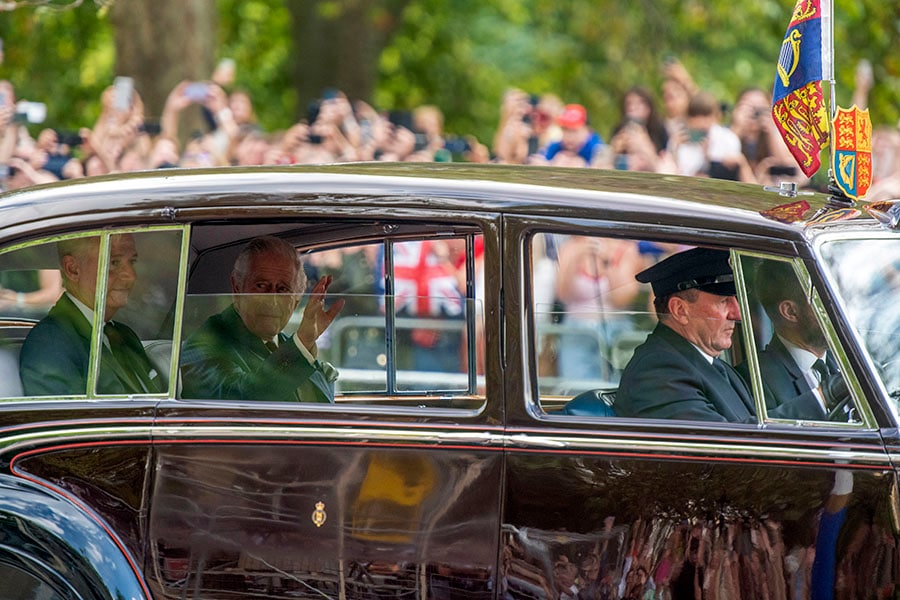
Inside King Charles III's billion-dollar investment portfolio
King Charles III built his own empire long before he inherited his mother's. Charles has spent half a century turning his royal estate into a billion-dollar portfolio and one of the most lucrative moneymakers in the royal family business
 King Charles III waves as he is driven to Buckingham Palace in London on Sunday, Sept. 11, 2022. Charles spent years turning his royal estate into a billion-dollar portfolio. (James Hill/The New York Times)
King Charles III waves as he is driven to Buckingham Palace in London on Sunday, Sept. 11, 2022. Charles spent years turning his royal estate into a billion-dollar portfolio. (James Hill/The New York Times)
LONDON — King Charles III built his own empire long before he inherited his mother’s. Charles, who formally acceded to the British throne Saturday, spent half a century turning his royal estate into a billion-dollar portfolio and one of the most lucrative moneymakers in the royal family business.
While his mother, Queen Elizabeth II, largely delegated responsibility for her portfolio, Charles was far more deeply involved in developing the private estate known as the Duchy of Cornwall. Over the past decade, he has assembled a large team of professional managers who increased his portfolio’s value and profits by about 50%.
Today, the Duchy of Cornwall owns the landmark cricket ground known as The Oval, lush farmland in the south of England, seaside vacation rentals, office space in London and a suburban supermarket depot. (A duchy is a territory traditionally governed by a duke or duchess.) The 130,000-acre real estate portfolio is nearly the size of Chicago and generates millions of dollars a year in rental income.
The conglomerate’s holdings are valued at roughly $1.4 billion, compared with around $949 million in the late queen’s private portfolio. These two estates represent a small fraction of the royal family’s estimated $28 billion fortune. On top of that, the family has personal wealth that remains a closely guarded secret.
As king, Charles will take over his mother’s portfolio and inherit a share of this untold personal fortune. While British citizens normally pay around 40% inheritance tax, Charles gets this tax-free. And he will pass control of his duchy to his elder son, William, to develop further without having to pay corporate taxes.
©2019 New York Times News Service







